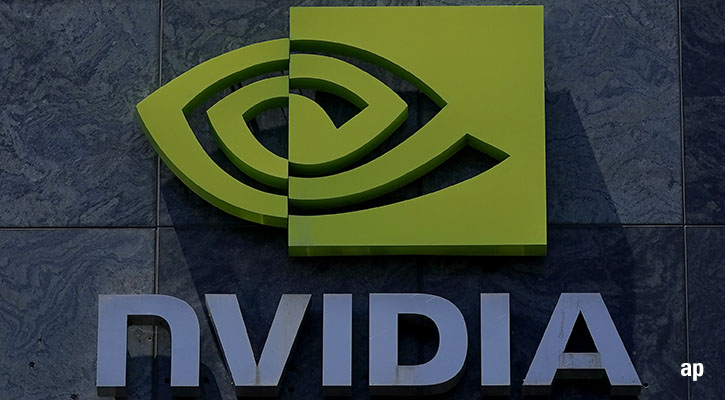![]()
Missed the latest Nvidia (NVDA) bull run? You’re not alone. With shares 30% higher in just a month – and up 170% so far this year – everyone’s talking about the Nasdaq-listed semiconductor firm as it rides the AI wave.
With everyone chasing the same stock, naturally valuations tend to get stretched; at the start of this month, Morningstar analysts hiked their fair value estimate from $200 to $300. But with shares flirting with $400, some investors may assume they’ve missed the boat – unless they own funds and trusts that already have exposure (one trust bought Nvidia in 2016).
I’ve already touched on the idea of picking “winners” in the AI revolution; Morningstar has already identified Microsoft as an early leader. But recent share price moves in the wider semiconductor sector suggests that this a broad-based rally: shares in Advanced Micro Devices (AMD), which like Nvidia is also based in California, are up 91% year to date. While many of the industry’s companies are rivals, there’s also an element of interconnection; Taiwan Semiconductor Manufacturing (TSMC) (2330) makes chips for Nvidia, while Netherlands firm ASML (ASML) provides specialist equipment to TSMC to make them too.
Below we've filtered out the biggest semiconductor companies by market cap. Technology stalwart Intel (INTC) has a $130 billion capitalisation and is rated as fairly valued by Morningstar analysts. Formerly a wide moat firm, Intel has been shifted down to a narrow moat. "We believe Intel's cost advantage has eroded, as it faced significant product delays associated with its various process technologies," says analyst Brian Colello. It's in danger of losing market share to AMD, and has lagged its rivals in breaking into the smartphone market, having made its reputation for PCs with "Intel inside".
This may seem like a benign feedback loop that an investor can plug into easily, especially as the world gets excited (and anxious) about the potential for AI. My colleague Jocelyn Jovene pointed out at the end of last year that the industry tends to be highly cyclical, subject to shortages and gluts, and also buffeted by geopolitical winds like the US-China trade war.
Companies that make chips in a semiconductor fabrication plant (a “fab” or “foundry”) are vulnerable to economic downturns, because of the high fixed costs of the specialist equipment required. “Fabless” companies provide the research and development rather than the manufacturing capacity, but are still subject to changes in sentiment and are affected by supply and demand dynamics. Nvidia, Apple (AAPL), AMD and Qualcomm (QCOM) are all examples of this.
The media often uses the word “chipmaker” as handy shortcut but it’s not strictly accurate – so it’s worth finding out what the company you plan to invest in actually does. A designer/maker distinction is a useful distinction. Or you could just take the thinking out of it and go down the ETF route – just search for “semiconductor” on the Morningstar.co.uk website and this comes up with products by HSBC, iShares, VanEck and Lyxor among others. Some funds even offer the option of going “long” or “short” on the sector, but this is an altogether more risky endeavour.
As Nvidia’s share price chart shows, investing in semiconductors has been a bumpy ride; its shares fell 44% in 2022 during the tech selloff, but this followed a 126% gain in 2021. Over five years the shares are up nearly 500%, however. As semiconductors tends to be defined under the very wide umbrella of “tech”, which can fall out of favour, as we discovered last year. Investors tend to get excited about themes like AI and move on quickly.
Morningstar covers a range of stocks in the semiconductor space. And many of these are trading near fair values or are undervalued and all have economic moats (some of these are wide). We've profiled the cheapest ones under Morningstar metrics in the table below.
While ASML is now fairly valued, this wide-moat stock is well thought of by our analysts.
“As the largest and most advanced supplier of photolithography equipment, the company exhibits considerable scale and technological superiority relative to its competitors. Its technical expertise and large R&D budget serve as barriers to entry, but competitors do exist (Nikon and Canon), albeit in a substantially lesser capacity,” says William Kerwin.
He's also confident about the broader market dynamics in the future.
“Emerging opportunities involving artificial intelligence, 5G, the metaverse, semi- and fully autonomous vehicles, and the broader ‘Internet of Things’ collectively give us confidence in maintained semiconductor demand, especially as these broader end markets have more varied performance, efficiency, and connectivity requirements.”



























